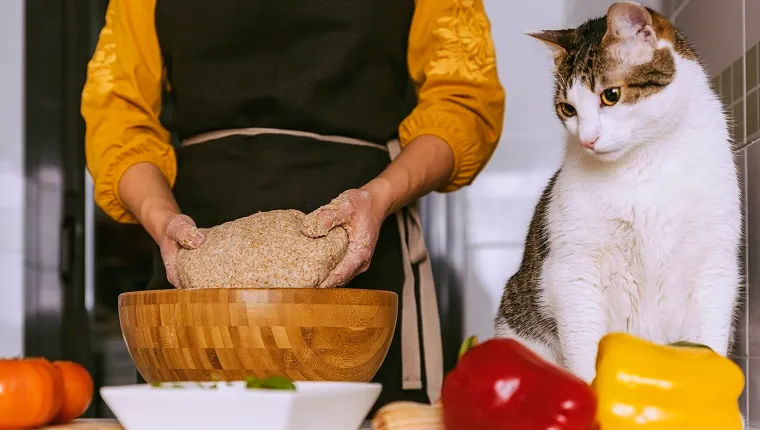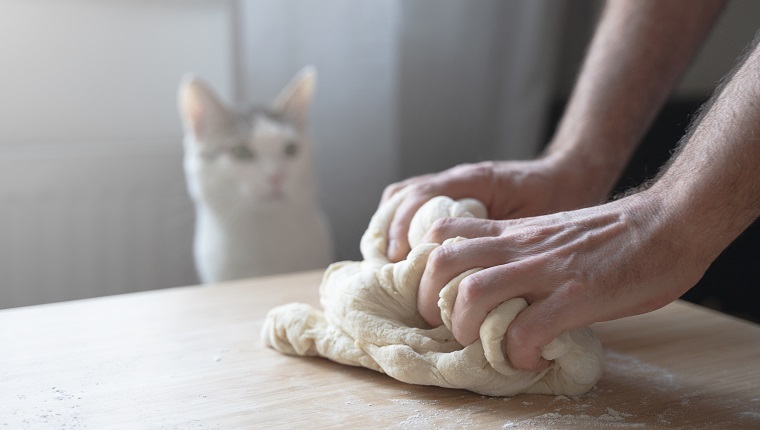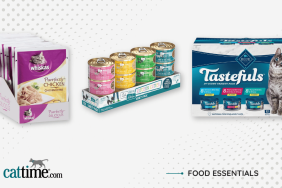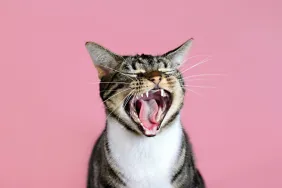Can cats eat yeast? Maybe this thought has crossed your mind if your cat tried to sneak a bite while you were kneading some pizza dough ahead of baking a home-cooked pie for dinner. If humans can eat yeast, can cats safely eat it too?
The short answer is no, cats can’t safely eat yeast. If a cat eats yeast, it can lead to a case of bloat or alcohol poisoning — and both situations could require a visit to an emergency veterinarian.
Here’s what you need to know about yeast and cats.
Why Is Yeast Bad For Cats?
Technically, bread is not considered to be toxic to cats; although, carbohydrate-based foods do not really confer many health benefits on a feline. But when it comes to the actual uncooked yeast, the ingredient can be extremely dangerous for cats to eat.
If a cat manages to eat some yeast, the ingredient will carry on rising and expanding inside their stomach. This, in turn, can result in the kitty suffering from bloat and a distended stomach. In some cases, surgery might even be required to successfully remove the dough from the cat’s stomach.
Secondly, due to the way yeast ferments, it also releases an amount of ethanol. If the ethanol gets absorbed into the cat’s bloodstream, it can cause a case of alcohol poisoning.
What Should I Do If My Cat Eats Yeast?

If you discover that your cat has eaten yeast, it’s imperative to look out for any symptoms they might be showing. This can help determine if your cat is suffering from a case of alcohol poisoning or bloat.
Some of the most frequent symptoms of bloat and alcohol poisoning in cats include the following:
If you notice that your cat has eaten yeast, the best course of action is to monitor for symptoms while calling your veterinarian right away. Cases of bloat and alcohol poisoning can accelerate very quickly and, in some cases, become fatal.
When it comes to cats and yeast in general, it’s advisable to make sure that you don’t leave dough out to rise in areas of the home that an inquisitive cat could access.
Do you make sure to keep yeast away from your cat? Where do you keep rising dough when you bake so your kitty can’t get it? Let us know in the comments below!









